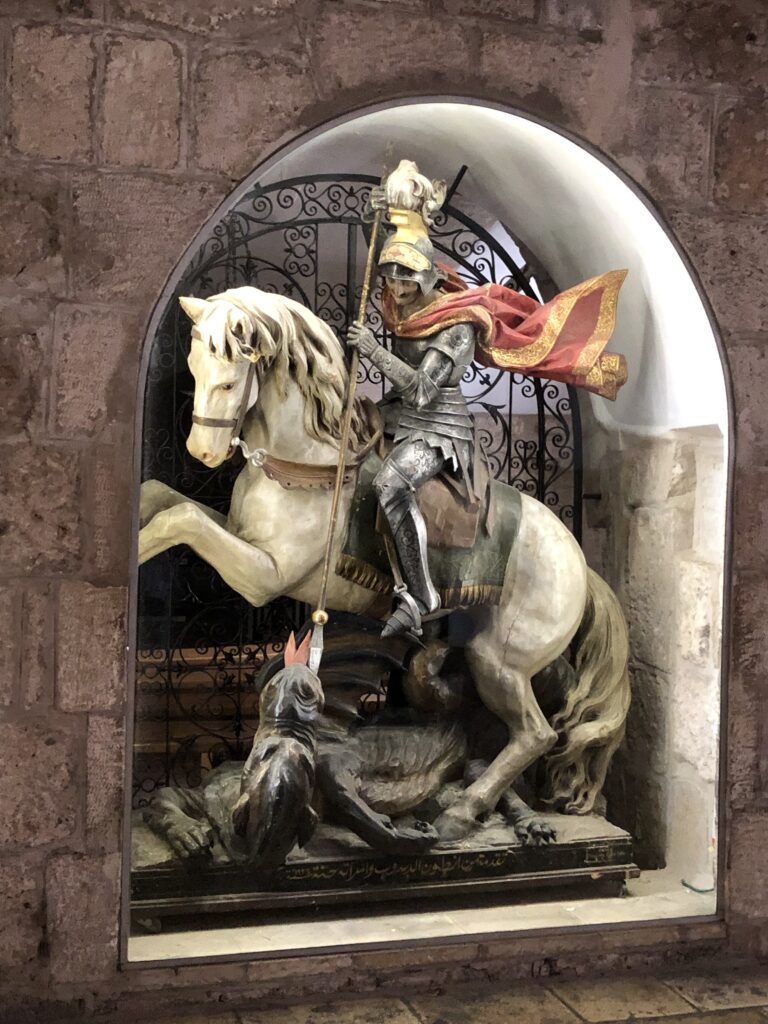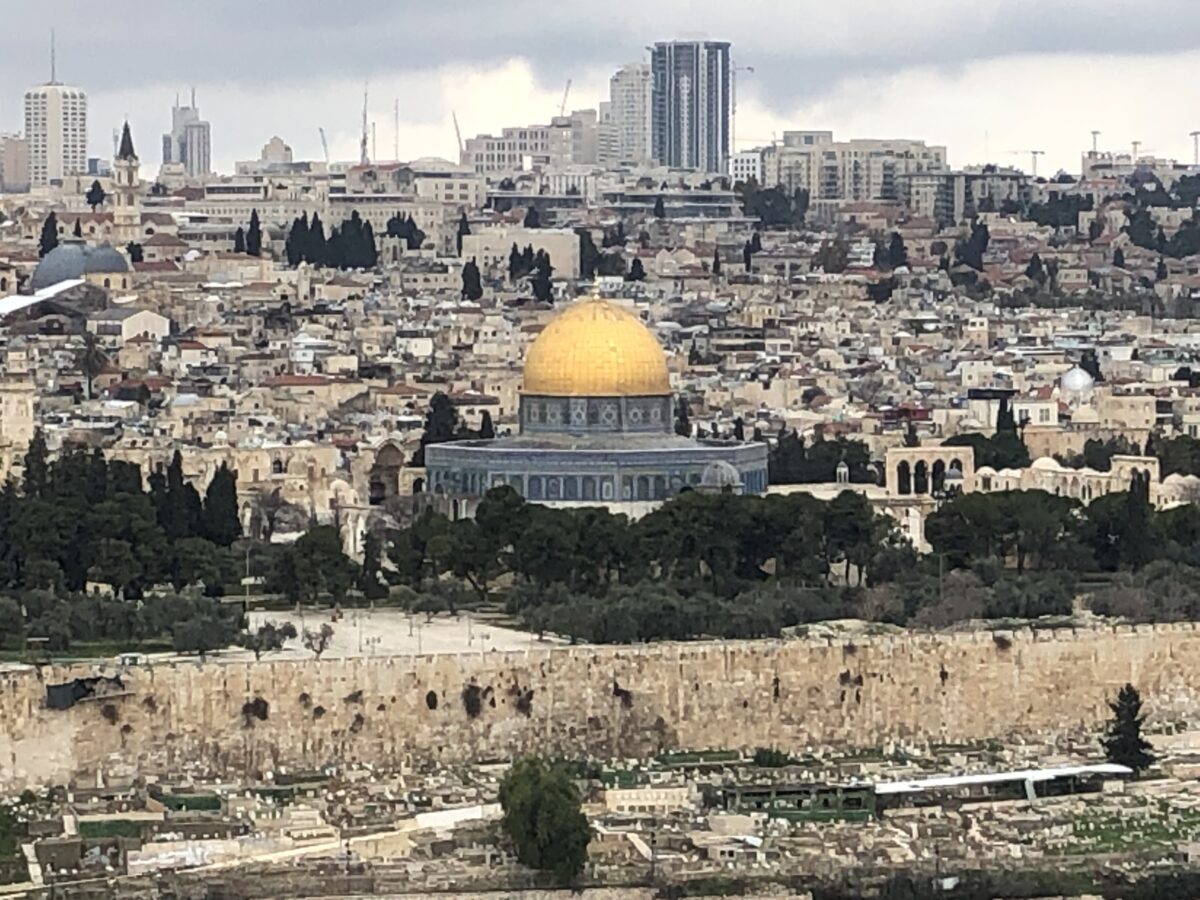The straightforwardness found in Israel.
By Mike Swadling
“Before I left I was told to be careful and asked if it was safe. As any resident of Croydon or London generally would know, safety can be a relative thing.”
I’m rapidly coming to the conclusion that there’s something to be said for living under an existential threat. I don’t want anyone to be threatened or come to harm, but the reason for being, and the drive a common enemy gives, really does seem to improve a society. Much is made of the blitz spirit, but I’m not sure the benefit was worth the nightly visits from the Luftwaffe. But as I’ve written about before Britain used to know how to react to evil in a way we no longer do.
I recently visited Israel, staying in Jerusalem. Before I left I was told to be careful and asked if it was safe. As any resident of Croydon or London generally would know, safety can be a relative thing. What I found was a city that despite recent events, felt very safe, and a society where people could wander around engrossed in their lightly held mobile phones. Something most Londoners know better than to do.
“As a history buff it’s great to be in a land when you can be snobbish about not taking much of an interesting in anything not BC”
As a history buff it’s great to be in a land when you can be snobbish about not taking much of an interesting in anything not BC, and certainly not anything less than a thousand years old. Israel uses the BCE (Before Common Era) and CE (Common Era) notations for years. Whilst I find these generally dreadful (what for heaven’s sake denotes the Common Era) I can just about forgive a Jewish state for not wanting to recognise “anno Domini nostri Jesu Christi” (AD). Beyond the history though this was a country that, to put not too fine a point on it, cut the crap.
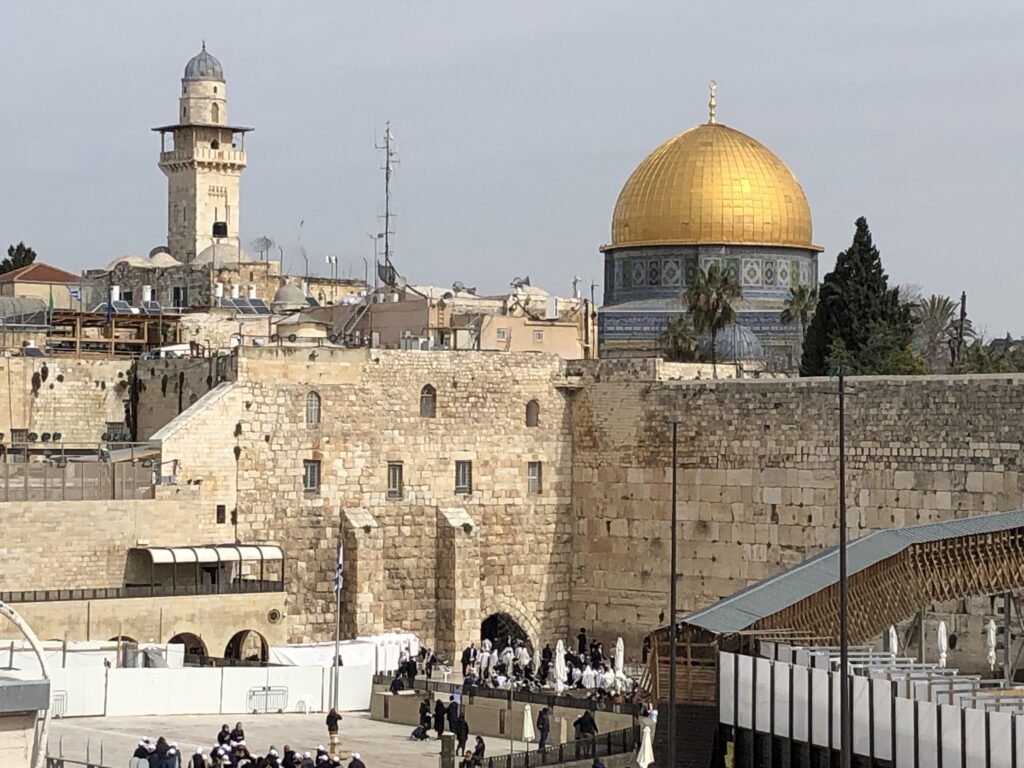
The old city of Jerusalem demonstrates a knack for avoiding the superfluous when visiting the Temple Mount and the Western Wall (often known as the Wailing Wall). Both require men and women to pass via different entrances, both have different dress codes for men and women, and the Western Wall had different sections for men and women to ‘wail’ at. There is no choice of pronouns. If the armed IDF (Israel Defense Forces) guards and Police don’t persuade you of the seriousness of the rules the religious guardians will. Israel is consistently ranked highly as a LGBTQ country and markets itself as “The ultimate LGBTQ travel destination” but when it comes down to it some things weren’t up for debate in the City of David.
“turn one corner and see ‘free Palestine’ T-shirts everywhere, turn another and be surrounded by Menorahs, walk on a bit and follow the path Christ took to his crucifixion”
The old city of Jerusalem is a fascinating place where you can turn one corner and see ‘free Palestine’ T-shirts everywhere, turn another and be surrounded by Menorahs, walk on a bit and follow the path Christ took to his crucifixion. One of the best sites to visit in the old city is the Church of the Holy Sepulchre. A site from the 4th century which covers the sites Christ was crucified and buried at. The church is shared by the Catholic Church, Armenian, Greek, Ethiopian, Syriac, and Coptic Orthodox churches. Although the primary custodians are the Roman Catholic, Greek Orthodox and Armenian Apostolic churches, the keys are held by a Muslim family as the various Christian denominations couldn’t agree who between them should be able to open the church. The current holder popped by as we toured and said hello to our guide, a friendly elderly man he checked on the work going on inside the building and wandered off, seemingly passing blessings to all he encountered.
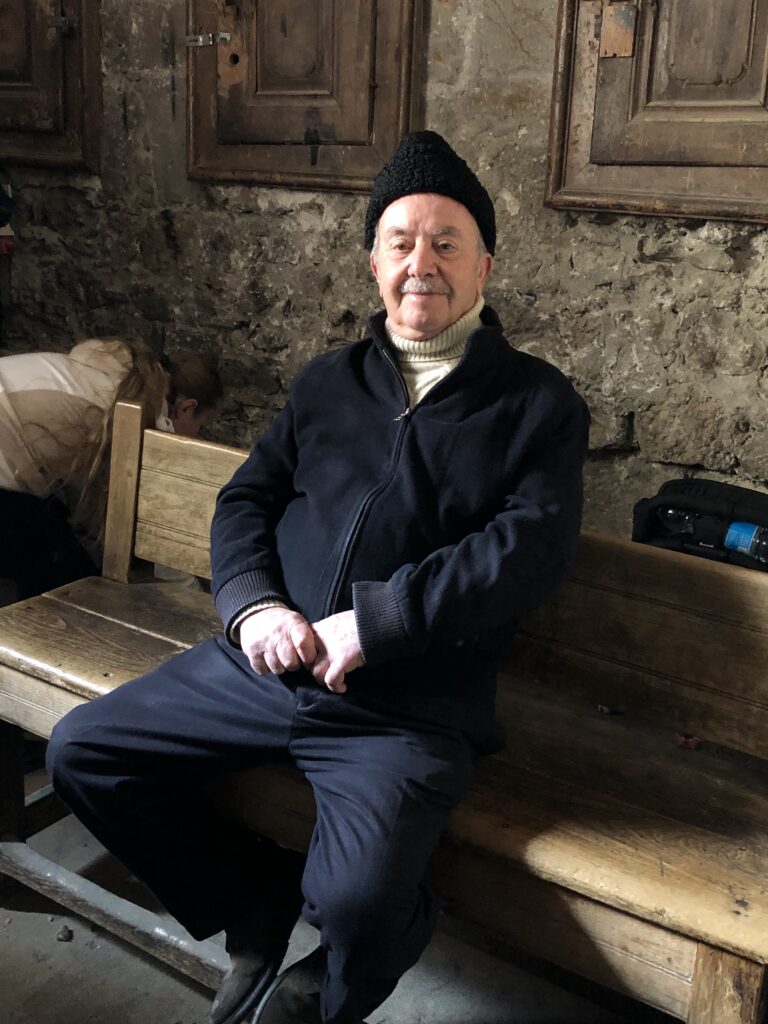
“On approaching them you see what looks like any school trip, teenagers in a uniform, laughing and joking. It’s not until you notice that every so often one of them is carrying a machine gun”
I joked on one tour with some fellow Londoners that we probably often walked past teenagers carrying guns back at home, here of course, they were IDF soldiers. Whilst on national service, soldiers are taken around major historical sites. On approaching them you see what looks like any school trip, teenagers in a uniform, laughing and joking. It’s not until you notice that every so often one of them is carrying a machine gun, and many have side arms. This isn’t a normal school outing. But that’s not all you notice, whilst all Jewish, almost 2000 years of the diaspora since the failed revolt against Rome, and the 2,500 years since the deportation to Babylon and migration to Ethiopia (although this date is contested), has meant Israelis at least look a very mixed ethnic bunch. Aside from ethnicity the IDF volunteers will come from a variety of cultures, and whilst all speaking Hebrew (and most English) will likely have differing third languages. All this leaves aside the many Arabs that volunteer for service. But the thing you notice is the shared sense of purpose, you notice these teenagers enjoying each other’s company, whilst still acting responsibly. You notice they are as one, pulled together in adversity, and through service. Later out in a bar I happened to chat to a couple of staff about how they found national service. One barmaid who had finished her 2-year stint a few years earlier (men serve for 32 months, women for 24 months), said she felt national service was like kindergarten, “a very hard system I wanted to break free from”. But she showed no animosity, no anger, no hysterics, you all too often see from westerners of the same age. It was matter of fact; it was regardless of her relative youth, mature.
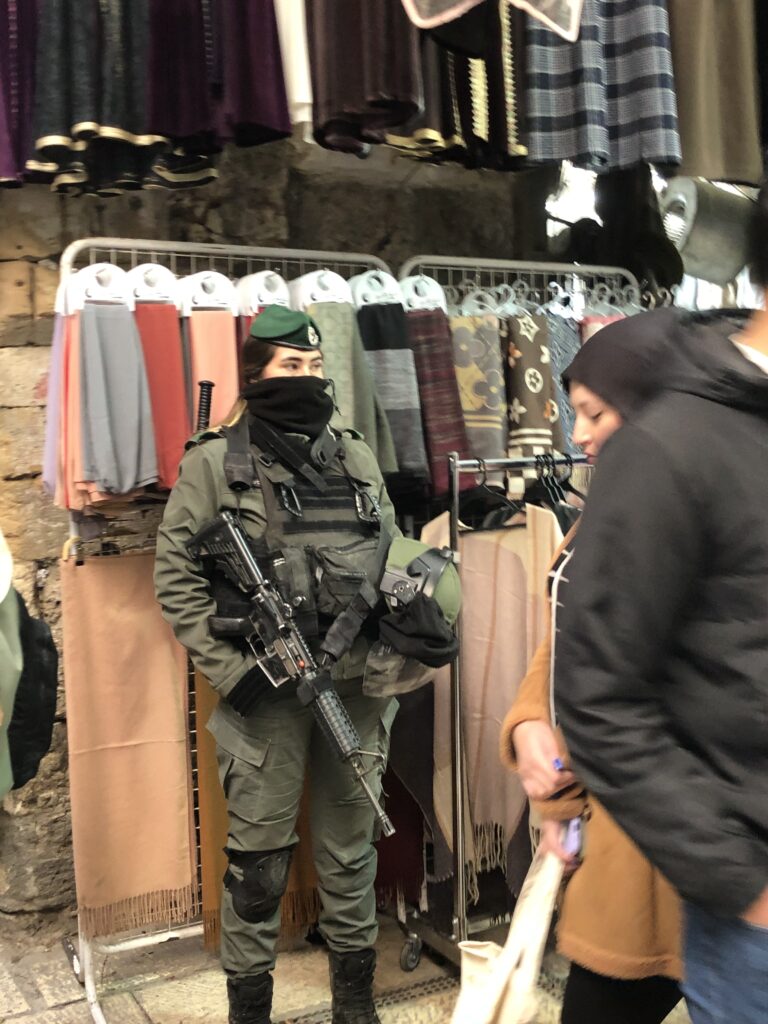
Israel has no written constitution, but like the UK has a Supreme Court who in recent years has grabbed more power, becoming a modern Kritarchy. With no constraining document the court has become in effect a new legislative body, holding power without the democratic accountability. Benjamin Netanyahu’s new government is trying to change this, allowing the parliament to overturn the court’s verdicts with a simple majority in the Knesset. I confess to knowing none of this as I visited the museums across the road from the legislature. Seeing a protest gathering I decided to wander up to ask what was going on.
“this was a friendly protest and a protest by patriots. One group made a point of showing they were ex-IDF, another was singing all the way, most all held Israeli flags.”
Having been on a couple of protests I can say the first protester made the common mistake of protestors, of eyeing everyone not 100% on board with their views with suspicion. Whilst polite enough he clearly couldn’t accept that my asking him what the protest was for was born from ignorance not disagreement. As an aside a note to protestors, not everyone is as fascinated by your subject of protest as you are. Maybe you should consider using the protest to grow the number of those aware of the issue, not just making it a test of the depth of faith of those attending. Anyway, eventually I found someone who could explain the protest to me, and in what I was finding to be an increasingly typically Israeli way (the first protestor aside) was able to explain both sides of the issue. Whilst giving her own view she was able to show balance.
Speaking to a few more people it became clear, this was broadly a left-wing protest. A protest by those who believed in (often global) rules by an anointed class, more than they believe in democratic mandates. Whilst my sympathy wasn’t by nature with them (I don’t pretend to know enough, to hold firm views on the issue), this was a friendly protest and a protest by patriots. One group made a point of showing they were ex-IDF, another was singing all the way, most all held Israeli flags. You simply couldn’t imagine a similar level of patriotism from a centre right protest in the UK, and certainly not from a centre left protest in the UK, US, Australia, New Zealand or much of Europe.
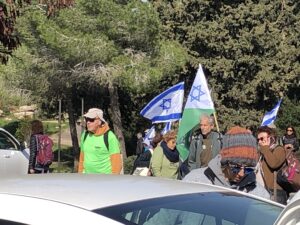
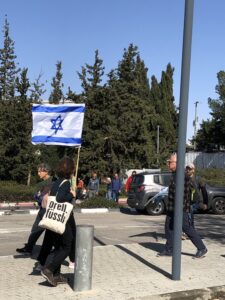
Upon getting back to some free Wi-Fi I googled the issue to find out some more. I could immediately see the difference between the straightforwardness I had been finding in Israel and the hyperbole of the west. The top 3 stories where from the supposedly politically neutral NPR proclaiming “Israel’s far-right government wants the power to override its Supreme Court”, the biased but reasonably written Israel Hayom asking “Would the Ten Commandments have survived the Israeli Supreme Court?”, and most reasonably from the city that will have to deal with any fallout, the Jerusalem Post with an opinion piece suggesting “Israel, it’s time for a grand bargain on judicial reforms”.
The history of Jerusalem made it a fascinating place to visit, as was my short trip to Bethlehem in the State of Palestine. But the people of the city were fascinating in the way they acted, similar to how I remember we did, in a more straightforward time.
